
Lena: Germany’s Teenage Singing Sensation Wins Eurovision Crown
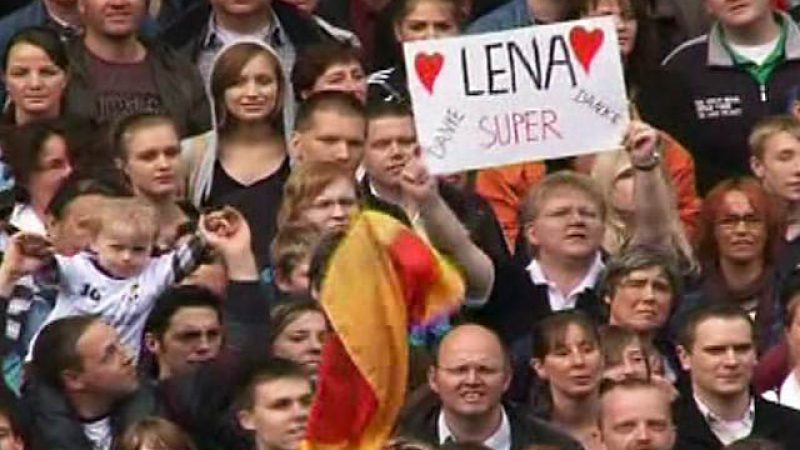
Germany’s brightest new star arrives back on home soil to a hero’s welcome on Sunday, after becoming the second only German ever to win the Eurovision Song Contest’s crown.
Lena Meyer-Landrut, 19, was greeted by thousands of fans at Trammplatz, just in front of the city’s Town Hall.
It was the 55th Eurovision song contest and the British-styled pop number, „Satellite“, proved an instant hit, as did the unaffected style of the Hannover teenager.
[Meyer-Landrut Fan]:
„She’s so natural. She’s a cool banana. Yeah, totally natural. She isn’t put on at all. That’s why.“
Lena was unknown to the world until she became Germany’s qualifier under the wing of TV personality and promoter, Stefan Raab, also there with his protégé on Sunday.
Another fan comments on Lena’s meteoric rise to fame.
[Meyer-Landrut Fan]:
„I hope she doesn’t get too full of herself like the rest of our star palette in Germany, but it’s looking good so far.”
Eurovision, which drew 124 million viewers last year, supports a wide array of musical styles in original songs, mostly from relatively unknown artists.
Germany, who has been waiting 28 years for a second win, is now bathing in the Grand Prix glory.
[Meyer-Landrut Fan]:
„Lena is great. We’re happy for Hannover and for Germany. Everything is great.“
In the self-proclaimed European song championships, flag-draped fans and outrageous outfits are par for the course and contestants’ mix of glitz and kitsch, ballads, rock ’n‘ roll and disco to lure the highest number of votes.
But unlike past years when polished and glamorized American-style performers took center stage, Lena’s fresh and uncontrived style appealed most.
As the winner, Germany will host the next Eurovision contest.
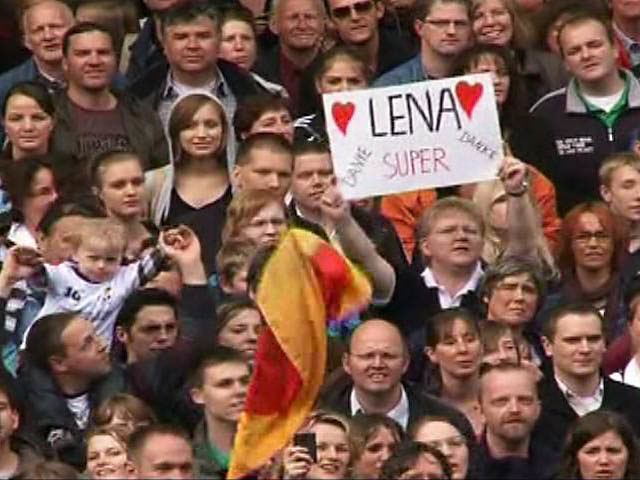 Foto: NTDTV
Foto: NTDTV



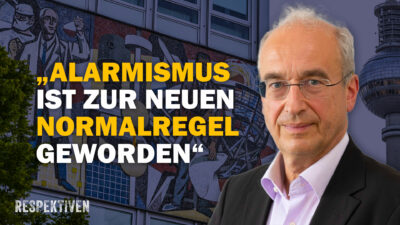







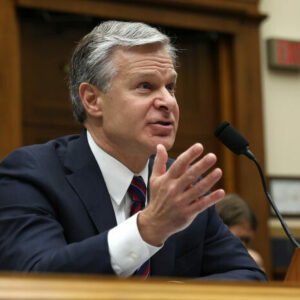






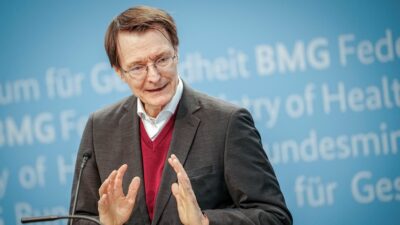








vielen Dank, dass Sie unseren Kommentar-Bereich nutzen.
Bitte verzichten Sie auf Unterstellungen, Schimpfworte, aggressive Formulierungen und Werbe-Links. Solche Kommentare werden wir nicht veröffentlichen. Dies umfasst ebenso abschweifende Kommentare, die keinen konkreten Bezug zum jeweiligen Artikel haben. Viele Kommentare waren bisher schon anregend und auf die Themen bezogen. Wir bitten Sie um eine Qualität, die den Artikeln entspricht, so haben wir alle etwas davon.
Da wir die Verantwortung für jeden veröffentlichten Kommentar tragen, geben wir Kommentare erst nach einer Prüfung frei. Je nach Aufkommen kann es deswegen zu zeitlichen Verzögerungen kommen.
Ihre Epoch Times - Redaktion